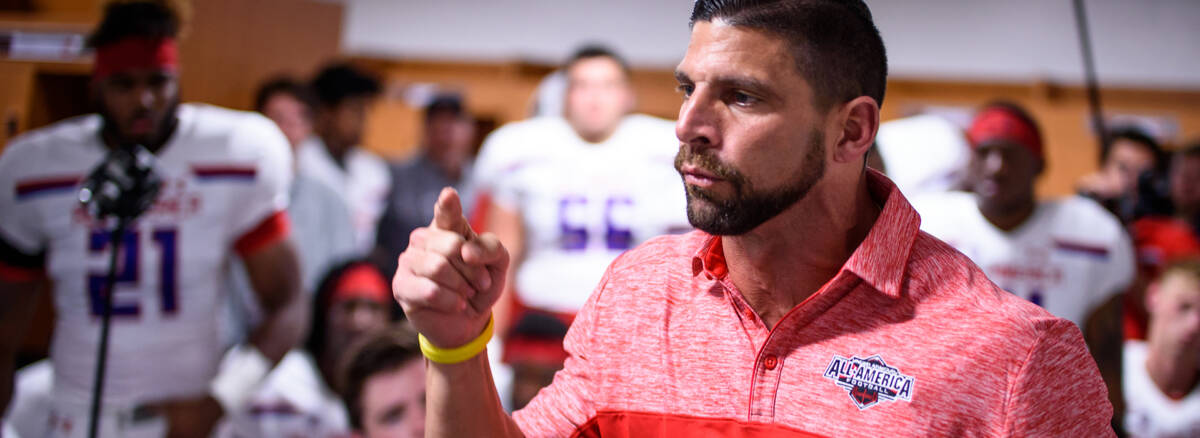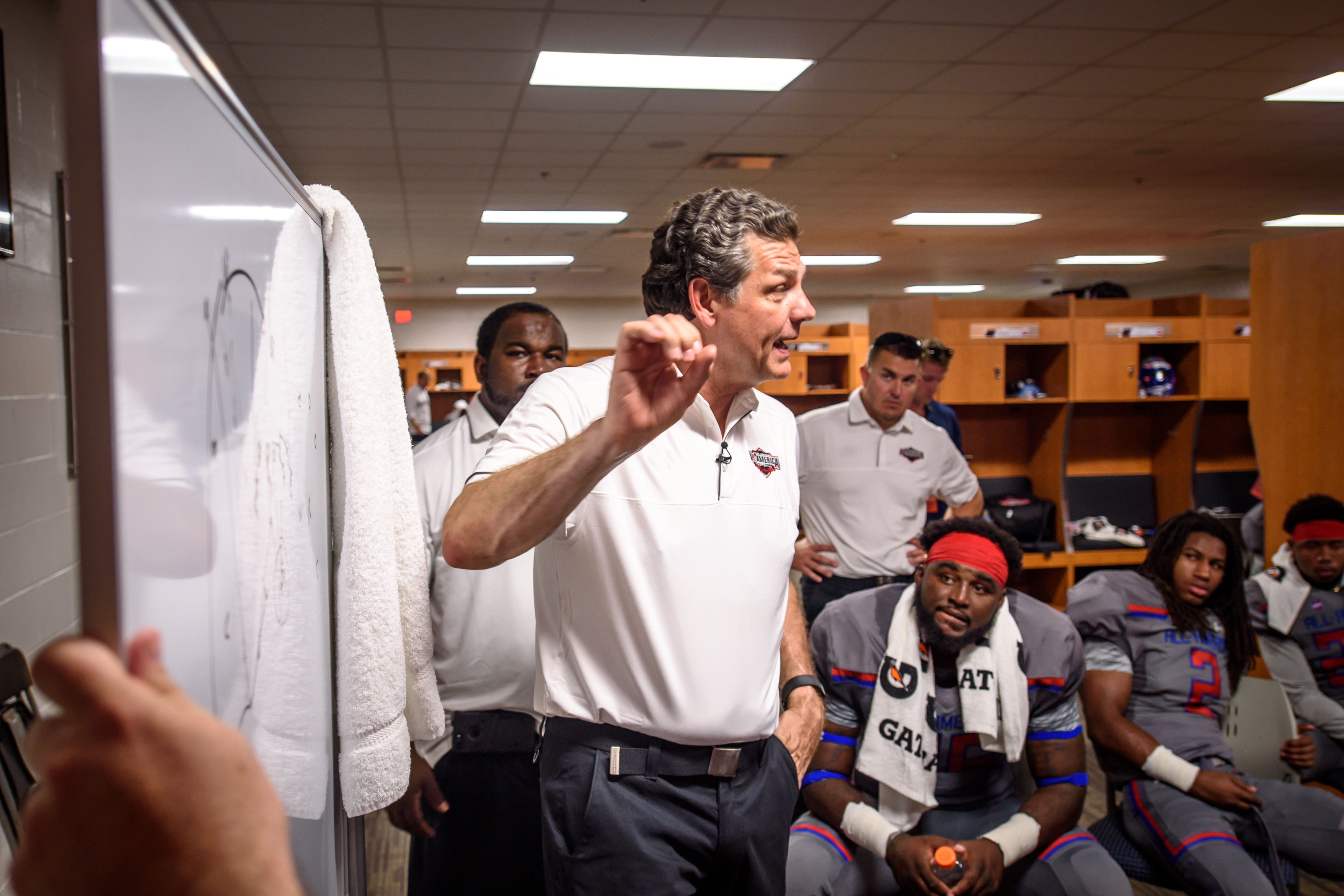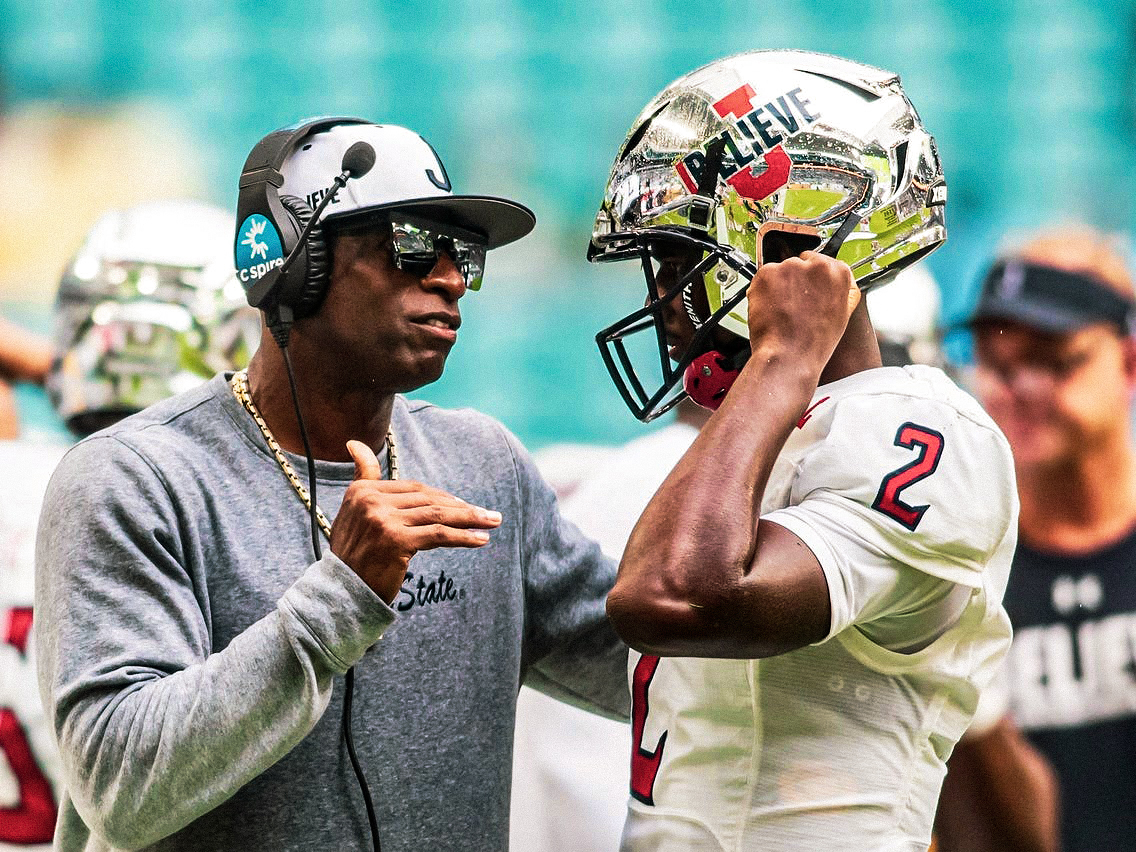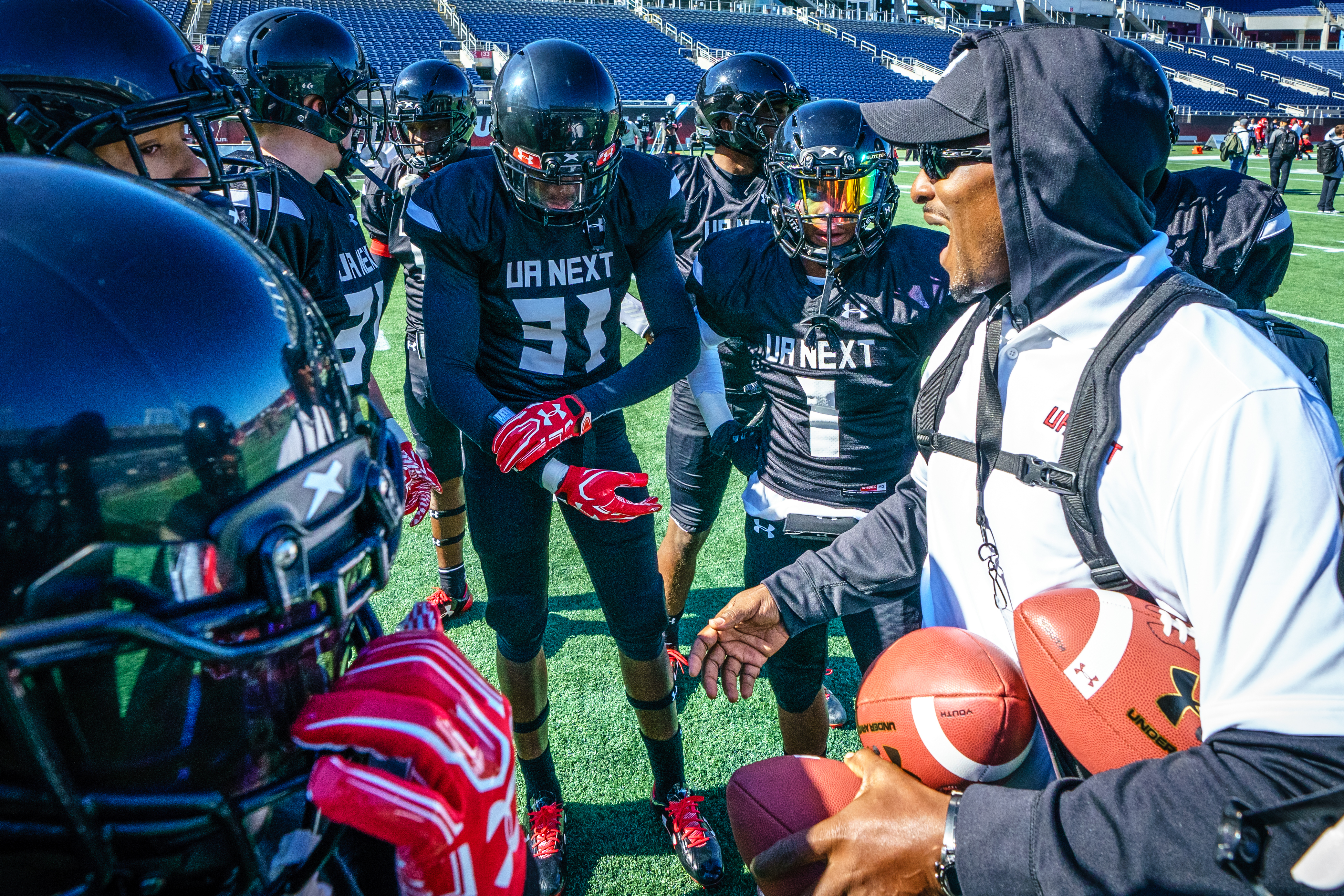
- Blog
- >
- How Coaches Inspire Their Football Teams
How Coaches Inspire Their Football Teams

September 7th, 2023
Keenan Crow
Head coaches are not just tactical masterminds; they are also skilled motivators who must inspire their players to give their all on the field. In this blog, we will explore the various strategies and techniques that head coaches use to motivate their football teams.
If you're a coach reading this, we even supplied a video for you to show your football team to spark their inspiration and help get your players fired up before their next game.
Setting Clear Goals
One of the first steps in motivating a football team is setting clear and achievable goals. Coaches often break the season down into smaller, more manageable objectives, such as winning a certain number of games, making it to the playoffs, or improving specific aspects of the team’s performance. By providing a roadmap for success, coaches give their players a sense of purpose and direction.

Building Trust & Relationships
Successful coaches understand the importance of building trust and strong relationships with their players. They take the time to get to know each athlete individually, both on and off the field. This personal connection fosters a sense of loyalty and camaraderie within the team, motivating players to give their best for the coach and their teammates.
Effective Communication
Communication is a cornerstone of motivation. Coaches must convey their expectations, strategies, and feedback clearly and consistently. They use both individual and team meetings to address concerns, provide constructive criticism, and offer praise when deserved. Open lines of communication make players feel valued and motivated to perform at their best.

Leading by Example
Head coaches serve as role models for their teams. They lead by example, demonstrating the work ethic, dedication, and professionalism they expect from their players. When players see their coach putting in the effort, they are more likely to follow suit and give their all on the field.
Tailored Motivational Techniques
Every player responds uniquely to different forms of motivation. Effective coaches take the time to understand each player’s personality and what motivates them individually. Some players thrive on positive reinforcement, while others may need more challenging and demanding coaching styles. Adapting motivational techniques to suit each player’s needs maximizes the team’s overall motivation.

Emphasizing Team Unity
Football is the ultimate team sport, and coaches emphasize the importance of team unity and cohesion. They create a strong sense of belonging and purpose within the team, highlighting that each player’s contribution is essential to the overall success of the team. This collective identity motivates players to work together and support each other.
Inspiring Resilience
In football, setbacks and adversity are inevitable. Coaches motivate their teams by instilling resilience and a never-give-up attitude. They emphasize how failure is a part of the game, but also an opportunity for growth. This mindset helps players bounce back from losses and setbacks with renewed determination.
Last season, Trevor Lawrence talked about how Jacksonville Jaguars head coach Doug Pederson instilled this type of mind set within the team by showing them a video of former Navy SEAL, Jocko Willink, discussing how to deal with adversity and setbacks by saying "Good" even when things aren't going the way you planned. In the video, Trevor explains how Jocko's message stayed with him throughout the season and even helped him complete one of the greatest comebacks in the league’s history.
Watch the video Trevor was referring to below - and consider showing it to your team to get them fired up before their next game.
Conclusion
Motivating a football team is a complex and multifaceted task, but it is a skill that successful head coaches master. By setting clear goals, building trust, effective communication, leading by example, tailoring motivational techniques, emphasizing team unity, and inspiring resilience, head coaches can ignite the passion and determination needed for their football teams to succeed on the field.
Ultimately, it’s these motivational strategies that can turn a group of talented individuals into a championship-winning football team.

